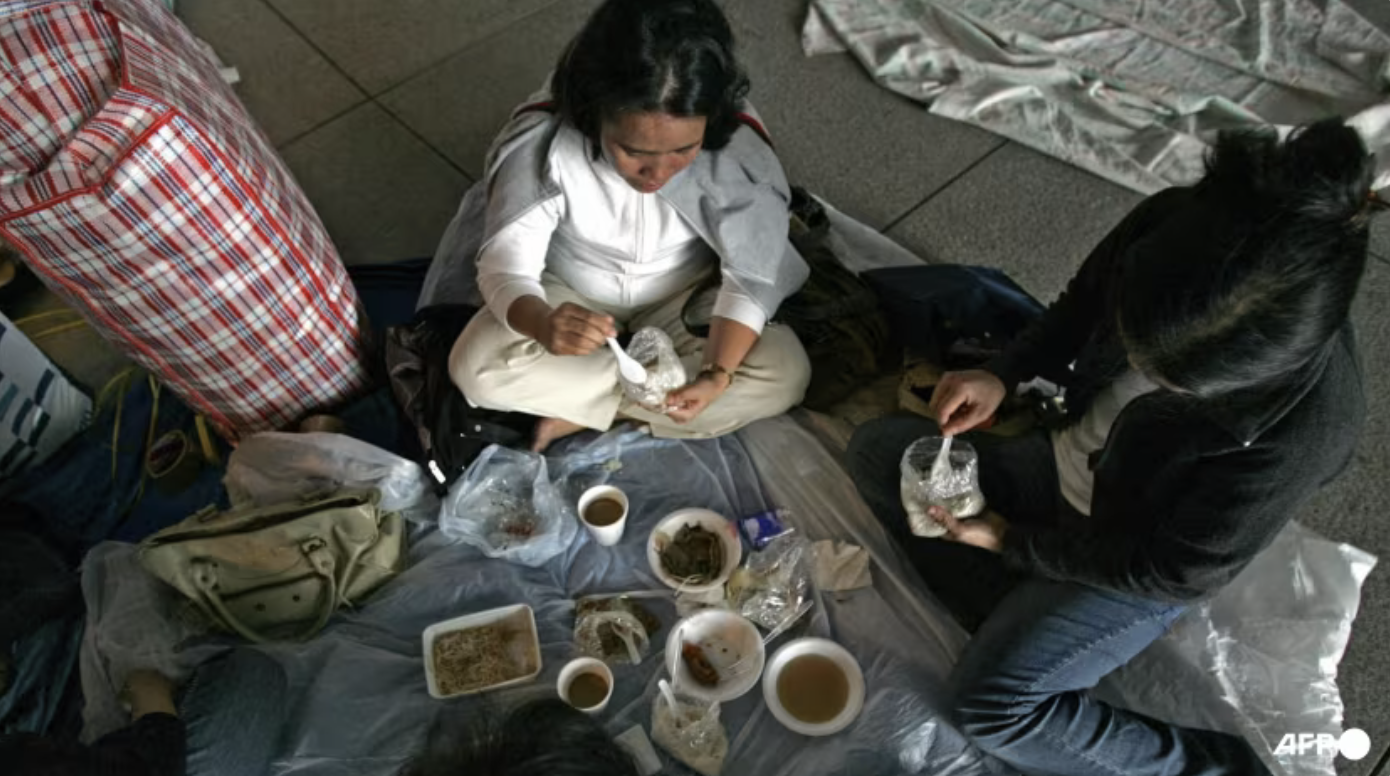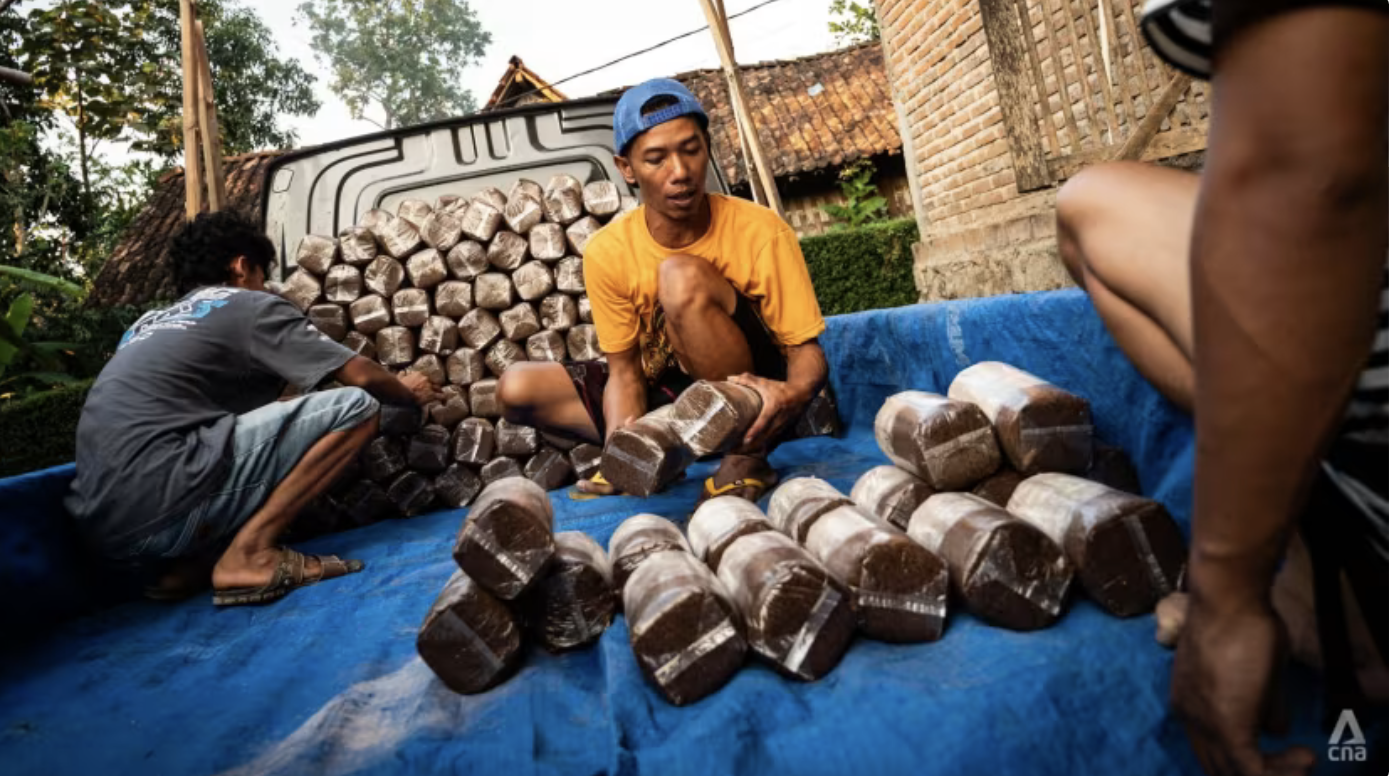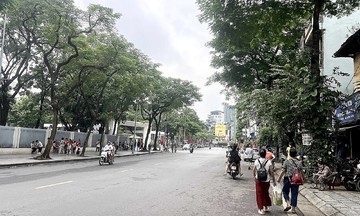Every night, in the bustling center of Penang, Malaysia, Rosa Angelina's loud, raspy voice rings out. Standing in front of a food stall, she calls to customers in Malay, English, and Mandarin, advertising her fried noodles.
At 32, Rosa has spent 9 years as a waitress in Malaysia. Her 2,000 RM (over 11 million VND) monthly salary is three and a half times more than she would earn in a similar job back home in North Sumatra, Indonesia. Thanks to her language skills, her income is also higher than the 1,500 RM minimum wage earned by many of her colleagues.
Despite this, financial worries are a constant.
Half of her salary goes to her parents, and the rest barely covers her food, transportation, and rent for an 18 m2 room she shares with a fellow Indonesian. Her accommodation is on the other side of the island, an hour's bus ride from her workplace.
"Wages increase, but not as fast as expenses. I have to accept living far away and enduring a difficult commute, all for my family," Rosa said.
Meanwhile, in a Kuala Lumpur suburb, Kyaw, from Myanmar, cleans tables in a small restaurant. As an undocumented worker, he earns about 2,000 RM monthly, with only one day off per month. With meals and lodging provided by his employer, he still needs 1,000 RM for other expenses and to rent a small room shared with other Myanmar nationals.
Kyaw tries to send 1,000 RM home each month. Sometimes, he can only send a few hundred due to unforeseen costs, such as bribes to authorities. He arrived in Malaysia legally in 2017, but his expired permit leaves him vulnerable to arrest and deportation. The instability in Myanmar leaves him with no choice but to remain in Malaysia.
"My family doesn't know the hardships I face. There are no jobs back home," he said.
 |
Filipino domestic workers share a meal as they gather during their day off in Hong Kong's Central district. Photo: AFP/Ted Aljibe |
Filipino domestic workers share a meal as they gather during their day off in Hong Kong's Central district. Photo: AFP/Ted Aljibe
Millions from Indonesia, the Philippines, and Myanmar seek opportunities abroad, hoping for a better life. Earnings can be 3 to 5 times higher, but the solitary life, far from family, is challenging.
Food and rent are significantly more expensive. Most of their earnings are sent home, leaving little for personal needs. Even those without family obligations struggle with debts from airfare and training fees accumulated before receiving their first paycheck.
Migrant worker wages have risen in the past decade but haven't kept pace with the rising cost of living.
In Hong Kong, the minimum wage increased 33.3% between 2013 and 2023, but property prices also rose 33% during the same period. In Malaysia, the minimum wage rose from 900 RM in 2013 to 1,500 RM, but rents have nearly doubled.
Rosa feels this pressure acutely. 9 years ago, she earned around 1,100 RM. Despite her income nearly doubling, she still struggles. "I have to send more money home because everything in Indonesia, from electricity to cooking oil and rice, is more expensive now," she shared.
For construction workers like Kurnia Adi, from Indonesia, income has actually decreased due to fewer overtime opportunities. "But many still have to leave because there are no jobs back home," he said.
 |
Former migrant worker Ari Yulianto, 40, loads belongings onto a pickup truck at his village in Ngawi, East Java, Indonesia. Photo: CNA/Wisnu Agung Prasetyo |
Former migrant worker Ari Yulianto, 40, loads belongings onto a pickup truck at his village in Ngawi, East Java, Indonesia. Photo: CNA/Wisnu Agung Prasetyo
To hide their struggles, many project an image of prosperity on social media. Ari Yulianto, 40, from Indonesia, worked seasonally in Malaysia for nearly 20 years and never posted photos of his cramped living quarters or complained about his job. Instead, he shared pictures of beach trips and sightseeing.
"I don't want my children back home to worry," the father of two said.
According to Marvin Rimas from Migrante Philippines, an international organization representing Filipinos living abroad based in Metro Manila, families back home are often unaware of the hardships their relatives endure.
"They only know that money is being sent home. Sadly, many families waste this money on lavish vacations and expensive purchases," Rimas said. "When the workers return, their accounts are empty, and they have to leave again."
According to the International Labour Organization, there are up to 169 million migrant workers globally. The World Bank estimates that in 2022, these workers sent home 794 billion USD.
Pressure doesn't just come from family. "There's a lot of pressure from fellow countrymen. They'll invite you for drinks and shopping trips," Cathy, 26, a Filipina domestic worker in Hong Kong, shared. She was once caught in a cycle of overspending on phones, bags, and jewelry, especially after e-commerce platforms introduced "buy now, pay later" schemes.
Cathy admitted it took her three years to pay off her debts. "My entire salary went to debt repayment; I even had to borrow from friends for food."
Many workers incur significant debt even before leaving their home countries. They're willing to pay brokers thousands of USD. Nur, an Indonesian mother of two, paid about 30 million rupiah (over 45 million VND) to work as a caregiver in Taiwan. Now, she's struggling to repay loans with exorbitant interest rates.
 |
A group of men play billiards in a poor neighbourhood in Metro Manila where many women work abroad as domestic helpers. Photo: CNA/Wisnu Agung Prasetyo |
A group of men play billiards in a poor neighbourhood in Metro Manila where many women work abroad as domestic helpers. Photo: CNA/Wisnu Agung Prasetyo
Support organizations believe governments should equip citizens with financial literacy. "They need to determine how much money to send home, how much to cover living expenses, and how much to save," said Rimas of Migrante Philippines.
Nasrikah Paidin, an advisor to the Indonesian Domestic Workers Association in Malaysia, agreed. "In our training sessions, we tell them that providing for their families is essential, but they also need to learn to say 'no'. The goal should be to build a house and open a shop when their contract ends."
Melinda Damayanti, 29, from Indonesia, has worked in Malaysia for 8 years. With accommodation provided by her company, she has, for the past few years, decided to keep a portion of her salary in a separate account instead of sending it all home.
"Whenever I ask about the money, my family says it's all spent. I'm disappointed that I have nothing to show for all these years away from home," she said. Melinda dreams of returning one day and building her own life, which requires savings.
Rebecca Bustamante, a Filipina entrepreneur, exemplifies upward mobility. Having worked as a domestic worker in Singapore and a nanny in Canada to pay off family debts, she always had a goal in mind.
"I told myself I wouldn't be a maid forever," she said.
She studied accounting part-time, then moved to Canada and found a sales job before starting her own company in 2005, which helps Filipinos find office jobs in North America.
Many people think their fate is to be a maid or a laborer. But if you truly want a better future, you need to develop yourself and improve your skills," Bustamante said. "There's no secret. It's all about setting goals and dedicating your time and effort to achieve them."
Minh Phuong (From CNA)












